Top 10+ Greatest Inventions That Changed The World
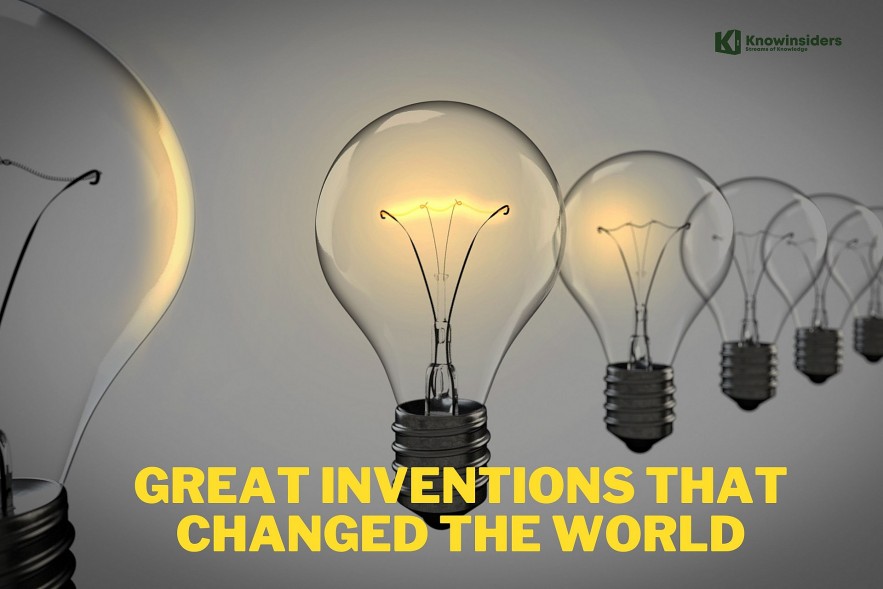 |
| The Great Inventions That Changed The World. Photo: KnowInsiders.com |
| Contents |
Technology is a core component of the human experience. Since the dawn of our species, we've been developing ways to manipulate matter through the use of tools. Attempts to rank the most significant innovations are highly contentious, but we can agree on the following game-changers.
1. The Wheel
 |
| Photo wheelzine |
The wheel is regarded by some as the greatest invention ever made. While it was difficult to imagine, it was not impossible to make a rolling cylinder. There needed to be a fixed axle for it to function. The axle ends and the holes in the wheels had to be round and smooth in order to create a fixed axle with rotating wheels. Axles had to fit into the wheel holes precisely with the proper amount of tightness to guarantee proper rotation.
The Sumerian people of Mesopotamia had already invented the boat, sewing needles, woven cloth, and basket weaving by the time they created the wheel. The wheel transformed how people lived, worked, and traveled. It also gave rise to other inventions like wheelbarrows and chariots. The humble but amazing wheel is also responsible for the development of other innovations like mills, steamboats, and several of the items on this list.
2. Light Bulb
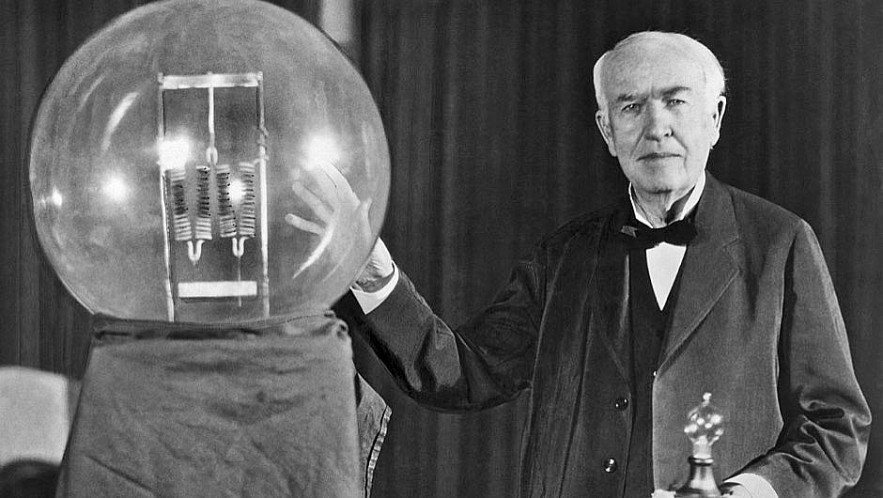 |
| Photo Getty |
Our reliance on natural light was eliminated with the invention of the light bulb, changing the world and enabling productivity day or night. Over the course of the 1800s, a number of inventors contributed to the development of this ground-breaking technology. However, Thomas Edison is recognized as the principal inventor due to his creation of a fully functional lighting system in 1879, which included wiring, a generator, and a carbon-filament lightbulb similar to the one above.
This invention not only started the trend of putting electricity in homes across the Western world, but it also had the rather unintended side effect of altering sleep patterns. We no longer stay up except for the 7 to 8 hours of sleep that are designated for sleep, and, ideally, we sleep through the entire night instead of going to bed at nightfall (having nothing else to do).
| With the invention of electrical appliances, which are now a necessary component of any home's operation, people's daily routines underwent yet another significant change. Irons were the first, and then refrigerators, washing machines, and other appliances. Women, who were typically in charge of taking care of the home, benefited most from these items because they replaced their physical labor and cut down on their working hours. |
READ MORE: Unplug 6 Devices to Reduce Electricity Bill Costs
3. Steel
Although stone, bronze, and iron were widely used by prehistoric human societies, steel was the primary material used to power the Industrial Revolution and construct modern cities. Although there is evidence of steel tools dating back 4,000 years, mass production of the alloy did not begin until the Bessemer Process—a method of producing steel from molten pig iron—was developed in the 1850s.
Subsequently, steel blossomed into one of the world's largest industries, utilized in the construction of everything from engines to skyscrapers and railroads to bridges. It had a particularly significant impact in North America, where the United States' development into one of the largest economies in the world was facilitated by abundant iron ore reserves.
4. Steam Engine
It is believed that Jerónimo de Ayanz, a mining administrator from Spain, was the first person to create a steam engine. Hie received a patent for a device that extracted water from mines using steam power.
Nonetheless, the first practical steam engine was developed in 1698 and is generally credited to the engineer and inventor Thomas Savery of England. His invention used steam pressure to extract water from flooded mines. Savery developed his engine based on ideas proposed by British physicist Denis Papin, a French-born man who created the pressure cooker.
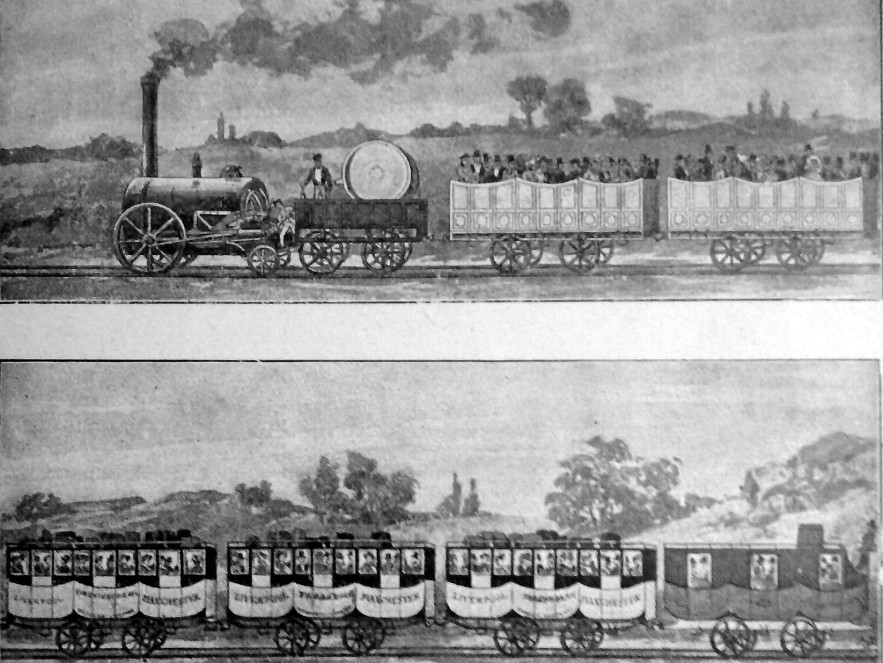 |
| Photo thought co |
Another Englishman, Thomas Newcomen, improved the engine in 1711, and in 1781, James Watt, a Scottish instrument maker employed by Glasgow University, added a separate condenser to Newcomen's engine, allowing the steam cylinder to be kept at a constant temperature — dramatically improving its functionality. He later invented a double rotating steam engine, which by the 1800s was powering trains, mills, factories, and a variety of other manufacturing operations.
5. The Elevator
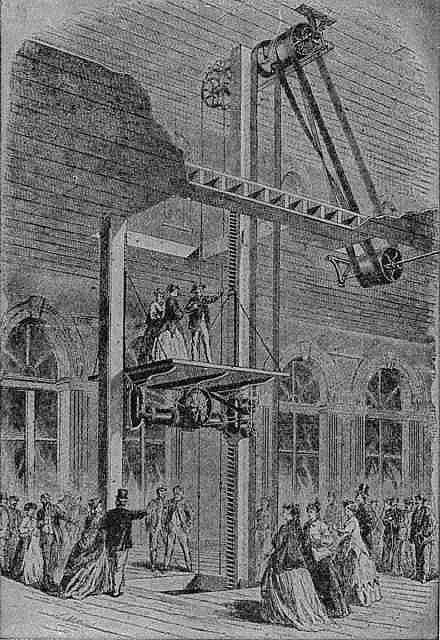 |
| Photo landmark elevator |
Elevators, which were first introduced in New York in 1857, catalyzed the development of skyscrapers and forever changed urban architecture, landscapes, and living.
Elisha Otis designed the world's first successful safe passenger elevator, which was installed in March 1857 in the five-story, 24-meter-tall Haughwout Building on Broadway in New York City. It cost $300 and moved at a rate of approximately 20 cm per second.
This progression resulted in exciting times. Much higher buildings became feasible as designers and architects began to appreciate the possibilities offered by elevators, eventually leading to the massive skyscrapers of today.
| Wener Von Siemens, a German inventor, built the first electric elevator in 1880. The first commercially successful electric elevator was installed in 1889. An electric elevator with automatic doors that close off the elevator shaft was patented in 1887. Elevators became safer as a result of this invention. The great advances in electronic systems during World War II caused many changes in elevator design and installation. Space elevators operate on the same principle as traditional elevators. They will be used to transport astronauts to the International Space Station. In theory, this concept could significantly reduce the cost of sending a person into space. |
6. The Printing Press
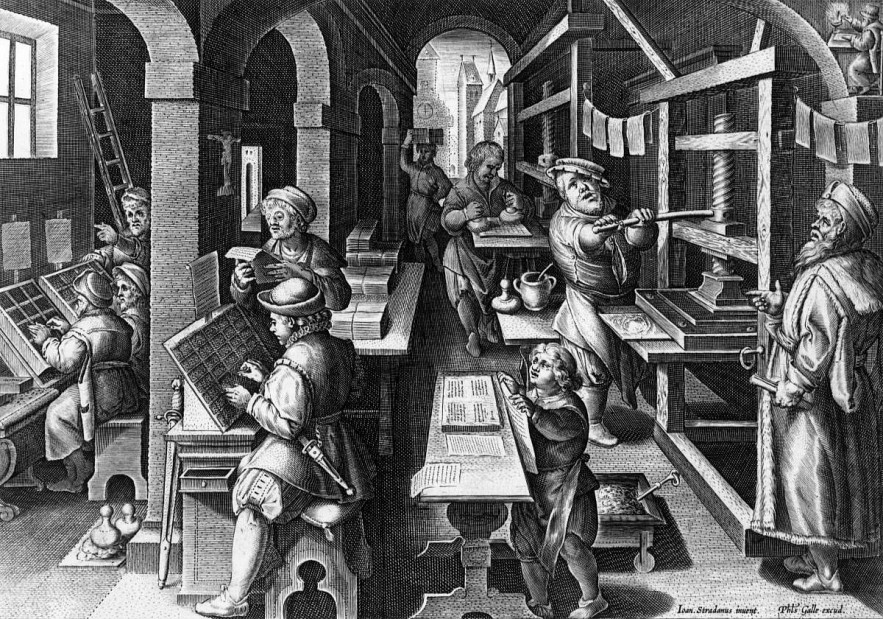 |
| Photo history |
This device, invented in 1439 by the German Johannes Gutenberg, laid the groundwork for our modern era in many ways. It made it possible to mechanize the transfer of ink from movable type to paper. Previously, books were generally hand-written (often by monks), which revolutionized the spread of knowledge and religion.
Who Invented the Printing Press Before Gutenberg?Gutenberg did not invent printing; he simply discovered a brilliant way to mechanize the process so that it could be performed on a large scale. Chinese printers had been using woodblock printing for nearly a thousand years before Gutenberg's adaptation of moveable type. In 1250, Choe Yun-ui, a civil minister in Korea, built on previous Chinese attempts to create moveable type. He was successful in creating small metal pieces with raised, backward letters that could be framed, painted with ink, and pressed onto a piece of paper—exactly what Gutenberg would do nearly 200 years later. Gutenberg did, however, perfect the process by using a wine press and discovering the right combination of metals that melted at a low temperature and hardened quickly. Furthermore, Gutenberg's alphabet was more practical for letter casting than the Korean alphabet, which was not phonetic at the time. |
7. Vaccines
The concept of immunization is not new. It can be traced back to Buddhist monks who drank snake venom and people in 17th century China who purposefully exposed their skin to cowpox to protect against smallpox, a related but far deadlier disease.
However, it was British doctor Edward Jenner, who developed the smallpox vaccine in 1796, who established the field of vaccinology. From there, Louis Pasteur advanced the field by developing vaccines for cholera, anthrax, and rabies.
By 1970, separate vaccines were available to combat the deadly measles, mumps, and rubella; in 1971, American microbiologist Maurice Hilleman combined them into one (MMR). Over the course of his career, Hilleman created more than 40 vaccines, including those for hepatitis A and B, meningitis, pneumonia, and other diseases. Vaccine development and use have saved countless lives around the world.
8. The Computer
It's difficult to imagine a facet of contemporary life where computers haven't had an impact. The term "computer" was first used in Richard Braithwaite's book The Yong Man's Gleanings in 1613, where it was used to refer to a human performer of computations. Before mechanical machines with the primary function of calculation emerged at the end of the 19th century as a result of the industrial revolution, the definition of a computer remained unchanged.
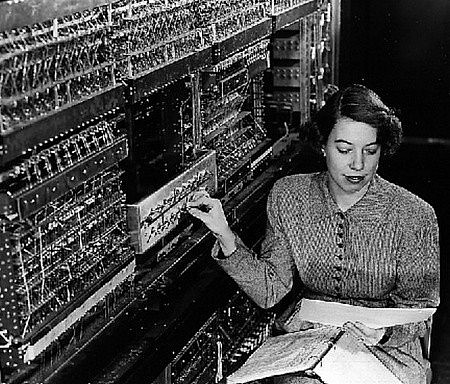 |
| Photo Pinterest |
The Difference Engine, which Charles Babbage conceived and started building in 1822, is regarded as the first automatic computer device capable of approximating polynomials. Multiple sets of calculations could be performed by the Difference Engine, and hard copies of the results could be produced. Babbage received some assistance from Ada Lovelace, who is credited with being the first person to program a computer, in the development of the Difference Engine. Regretfully, Babbage was never able to finish building a fully functional version of this machine due to financial constraints. For Babbage's bicentennial, the London Science Museum finished the Difference Engine No. 2 in June 1991. The printing mechanism was finished in 2000.
How did computers change the world?In many respects, computers have altered the world. They make it possible to store enormous volumes of data in a tiny area. They also make it easier for someone to calculate mathematical problems. Lastly, computers enable interpersonal communication via websites like Facebook, My Space, and Twitter. |
9. The internet
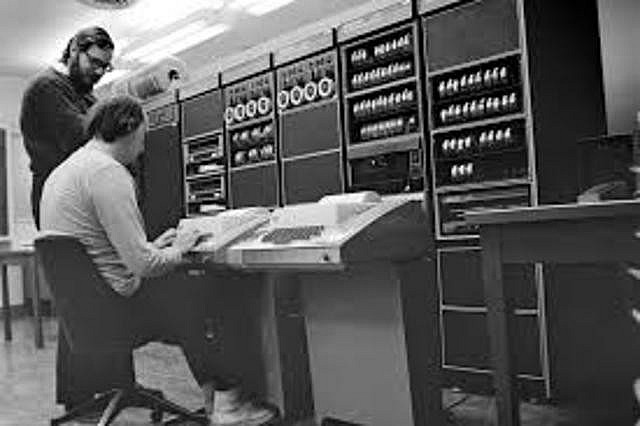 |
| Photo timetoast |
Billions of people use the internet, which is a global network of interconnected computers. The internet's forerunner, ARPANET, was created in the 1960s by a group of computer scientists employed by the US Defense Department's ARPA (Advanced Research Projects Agency) to link the agency's computers. Lawrence Roberts, a computer scientist and team member, created the "packet switching" method of data transmission, which was used. It was based on earlier research by other computer scientists.
In his book "Ideas That Created the Future:(opens in new tab) Classic Papers of Computer Science(opens in new tab)," computer scientist Harry R. Lewis states that this technology was advanced in the 1970s by scientists Robert Kahn and Vinton Cerf, who created the Internet's essential communication protocols, the Transmission Control Protocol (TCP) and the Internet Protocol (IP) (MIT Press, 2021). Kahn and Cerf are frequently referred to as the "inventors of the internet" because of this.
How has Internet changed throughout the time?The Internet has completely upended the way we live. It has completely transformed communication to the point where we now favor it for regular correspondence. We utilize the Internet in nearly every activity we do. Sending a picture via instant messaging, purchasing a television, ordering pizza, and spending time with friends. Before the Internet, the only way to stay up to date with the news was to visit your local newsstand first thing in the morning and purchase a copy that contained the day's events. But these days, all it takes is a few clicks to read the most recent news from anywhere in the world, including your local paper, and to see the most recent updates. The Internet has changed in and of itself. It was a static network in its early years, which are still relatively recent in history, meant to transfer a small amount of data or a brief message between two terminals. Content was published and maintained solely by skilled programmers in this information repository. However, in the modern era, vast amounts of data are uploaded and downloaded across this electronic behemoth, and the content is entirely our own since we are all now publishers, commentators, and creators. |
10. Antibiotics
Antibiotics, a huge advancement in medicine, prevented the spread of dangerous bacteria and killed millions of people, saving millions of lives. The first people to identify and try to treat bacteria were scientists like Louis Pasteur and Joseph Lister, but it was Alexander Fleming, who by chance discovered the bacteria-inhibiting mold known as penicillin in 1928, that made the first significant advancement in antibiotics.
Antibiotics quickly gained popularity throughout the 20th century after they were shown to be a significant advancement over antiseptics, which killed both bacteria and human cells. On the battlefield, their impact was most noticeable: In World War I, approximately 20% of soldiers who suffered from bacterial pneumonia perished; however, with the introduction of antibiotics, particularly Penicillin, this percentage decreased to 1% in World War II. Penicillin, vancomycin, cephalosporin, streptomycin, and other antibiotics have been shown to be effective against almost all known infections, including influenza, malaria, meningitis, tuberculosis, and the majority of STDs.
11. Telephone
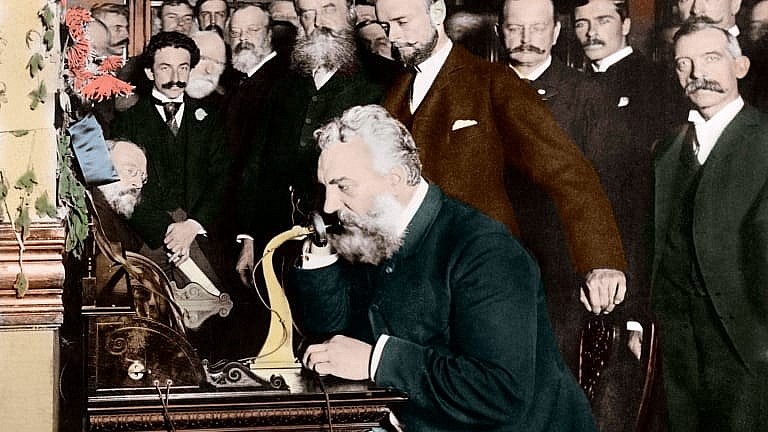 |
| Photo history |
Alexander Graham Bell, the inventor of the Bell Telephone, placed the first call, saying, "Mr. Watson (Thomas Watson), come here, I need you," in 1876.
The telegraph's capabilities were enhanced with the invention of the telephone.
The telegraph made it possible for people to send and receive messages, but it was limited because it required the use of Samuel Morse code, which made it difficult to transmit many non-English texts because there were no codes for letters with diacritical marks.
| Before the invention of the telephone, if something happened, you had to wait for someone to tell you about it, or you had to find out for yourself. With the telephone network, everything changed. You could call your relatives and tell them about your life, or you could call your friends and ask them how they were doing. It made life much easier for everyone. |
| The invention of the telephone made it easier and faster for people to communicate with each other, even if they were far apart. The telephone created new jobs for telephone operators, salespeople, and customer service representatives. |
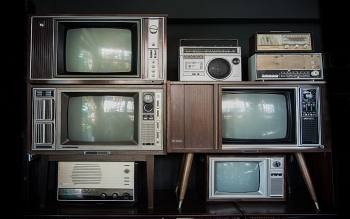 What is the first television in the world and who invented it? What is the first television in the world and who invented it? Evidently, television is one of the historic inventions in the world that allows us to get access to the information easily and conveniently. It takes ... |
 Top 10 Weirdest and Craziest Inventions of All Time Top 10 Weirdest and Craziest Inventions of All Time These are some of the strangest human inventions. Have you ever wondered what is the weirdest invention ever? Now, check out the list of the ... |
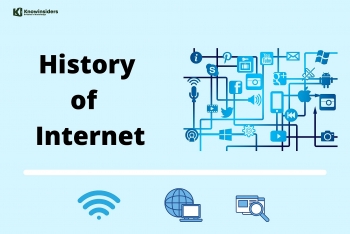 Internet & Wi-fi First Invention: Inventor, Date & Time, History and Facts Internet & Wi-fi First Invention: Inventor, Date & Time, History and Facts The internet has transformed our lives but when did it come about? Check out this article to know the history of the Internet, who invented ... |
























